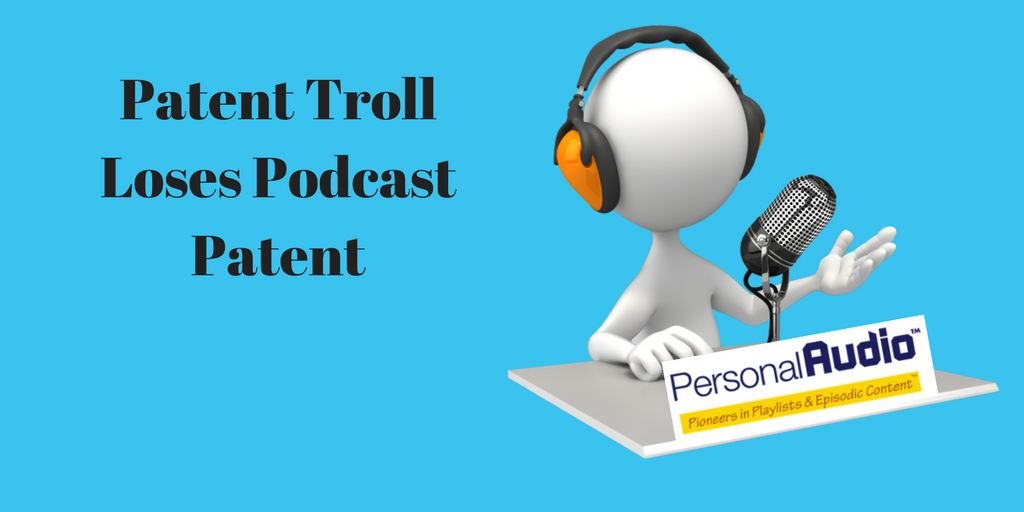Personal Audio Loses Podcast Patent
The U.S. Court of Appeals for the Federal Circuit ruled against Personal Audio LLC, a patent troll firm that claimed the rights to the podcast design of broadcasting. The court sided with Electronic Frontier Foundation (EFF) in their argument against the validity of patent US 8112504 “System for disseminating media content representing episodes in a serialized sequence.” This patent gave Personal Audio the exclusive rights to the widely popular podcast method of communication.

Published in 2012, Personal audio has used this patent to earn royalties and settlements from high caliber groups such as CBS and NBC. In 2013, EFF filed a petition challenging US 8112504 on the grounds of the overly broad nature of the patent.
In their argument, they cited that it harmed nontraditional media outlets. According to EFF staff Attorney Vera Ranieri “Here it was, a technology that was allowing a lot of non-traditional players to let their values be known. We wanted to protect the way that people engage in communications and share idea.”
What is a Patent Troll?
A patent troll is defined as, “a company that obtains the rights to one or more patents in order to profit by means of licensing or litigation, rather than by producing its own goods or services.” Often times patent trolls attempt to patent very broad ideas in order to give them the most coverage and allow maximum profit off of royalties and licencing. In the case of Personal Audio, they bought up telecommunication methods and systems as well as theoretical processes and designs. This is the primary method for patent trolls to make money, by forcing payouts for broad patents. In 2011 the won $8 million when Apple infringed upon their US Patent 6199076 .
Podcast Prior Art
EFF won their original April 2015 ruling, citing an example of prior art found in CNN’s Internet Newsroom and CBC’s Quirks & Quarks as examples of the format that predated Patent US 8112504. The new decision held upheld this argument, deciding,
“We have considered all of Personal Audio’s arguments and affirm the PTAB’s conclusion that the challenged claims are anticipated by the Patrick/CBC reference, and alternatively that the claims are invalid as obvious in view of the Compton/CNN reference.”
Previous Settlements
One of the problems facing Personal Audio is determining what to do with the companies that settled. The responsibility of the companies to pay Personal Audio is contingent on the phrasing of the agreements. Settlements that were paid with an upfront lump sum payment will most likely not be able to get a return, while companies that agreed to payment of royalties may be able to void their contracts, thereby ending their payments.
What Does this Mean for Podcasts?
In 2014 Personal Audio lost a civil trial against comedian Adam Corolla that resulted in a half million dollar payment. After that point, Personal Audio stopped pursuing podcast infringement cases, not out of the recognition of the limitations of their patents, but out of the lack of funds to support a sufficient legal team. The newest ruling on the podcast patent won’t change much in the industry of amateur broadcasting, it just served as symbolic victory against patent trolls and for the free flow of information.
Does this article interest you? Subscribe to the LoTempio Law email newsletter to receive posts and updates just like this conveniently in your email box!
Disclaimer: This article is not intended to be legal advice and is meant to be for educational or entertainment purposes only. For legal advice and questions, please contact Patent Attorney Vincent LoTempio


